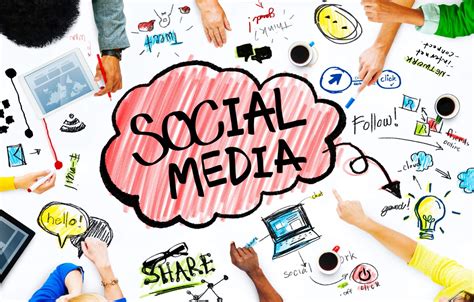In today’s digital age, the influence of social media is undeniable. From connecting with friends and family to shaping public opinion, it has become an integral part of our everyday lives. In this blog post, we will explore the evolution of social media and its impact on society and relationships. We will delve into the way social media has revolutionized communication and examine its effects on personal and professional relationships. Additionally, we will discuss its role in politics and activism, as well as the concerning issues of mental health, addiction, cyberbullying, and privacy. With the widespread use of platforms such as Facebook, Twitter, Instagram, and LinkedIn, it is essential to understand the profound ways in which social media is shaping the world we live in. Join us as we examine the social media phenomenon and its far-reaching implications.
Table of Contents
The Evolution of Social Media
Social media, once a simple platform for connecting with friends and family, has evolved into a powerful tool that has transformed the way we communicate and interact with the world.
From the early days of Myspace and Friendster to the dominance of Facebook, Instagram, and Twitter, social media has continuously adapted and innovated to meet the changing needs and desires of its users.
With the rise of smartphones and mobile technology, social media has become intertwined with our daily lives, influencing everything from how we receive news to how we share our personal experiences.
The evolution of social media has also led to increased concerns about privacy, misinformation, and the impact of social media on mental health, making it a topic of increasing relevance and importance in today’s society.
Impact of Social Media on Communication
In today’s digital age, the impact of social media on communication cannot be overstated. Platforms such as Facebook, Twitter, and Instagram have revolutionized the way we interact and connect with one another. These platforms have made it easier than ever to communicate with people from all over the world, breaking down geographical barriers and allowing for instant communication.
Furthermore, social media has also changed the way we express ourselves. With the rise of emojis, gifs, and memes, individuals can convey their emotions and thoughts in a more visual and dynamic way. This has transformed the way we communicate, as we can now express ourselves in ways that were not possible before.
However, it is important to recognize the negative impact that social media can have on communication. With the prevalence of online communication, face-to-face interactions have decreased, leading to a decline in essential social skills such as active listening and interpreting nonverbal cues. This has the potential to hinder the quality of our interpersonal relationships and communication.
In conclusion, while social media has undoubtedly revolutionized the way we communicate, it is essential to be mindful of its potential drawbacks. By being aware of the impact of social media on communication, we can strive to maintain a healthy balance between online and offline interactions, ultimately enhancing the quality of our communication in the digital age.
Social Media and Personal Relationships
Social media has significantly impacted personal relationships in the modern era. With the rise of platforms such as Facebook, Instagram, and Twitter, individuals are now able to connect with friends and family members from all over the world at the click of a button. This easy access to communication has revolutionized the way people maintain and cultivate personal relationships.
However, the over-reliance on social media for personal interactions has also led to a decrease in face-to-face communication. Many individuals find themselves spending more time scrolling through their social feeds than engaging in meaningful conversations with those around them. This lack of physical presence can have a detrimental effect on the depth and quality of personal relationships.
Another issue that arises from the use of social media in personal relationships is the phenomenon of social media jealousy. Individuals may feel envious or insecure when comparing their own lives to the carefully curated highlight reels of others. This can lead to feelings of inadequacy and strain on personal relationships.
Despite these challenges, there are ways to harness the power of social media to enhance personal relationships. Setting boundaries for social media use, prioritizing in-person interactions, and using technology to coordinate face-to-face meetups can all contribute to a healthier balance between online and offline relationships.
Social Media and Professional Relationships
In today’s digital age, social media plays a crucial role in shaping and maintaining professional relationships. With the click of a button, professionals can connect with colleagues, clients, and industry influencers from around the world. Platforms such as LinkedIn provide a space for individuals to showcase their skills and experience, making it easier for potential employers or business partners to discover and engage with them.
Furthermore, social media enables professionals to stay updated on industry news and trends, participate in relevant discussions, and gain insights from thought leaders. It serves as a networking tool, allowing individuals to establish and nurture connections that can lead to career opportunities and collaborations.
While social media has the power to enhance professional relationships, it also comes with its own set of challenges. Maintaining a balance between personal and professional presence on social media is crucial, as inappropriate or unprofessional content could potentially harm one’s reputation. Additionally, the digital nature of these interactions may sometimes lack the authenticity and depth that face-to-face communication provides.
Despite its drawbacks, there is no denying that social media has transformed the way professionals connect, communicate, and collaborate. By leveraging these platforms effectively, individuals can expand their professional networks, stay current in their field, and position themselves as valuable contributors in their respective industries.
The Role of Social Media in Politics
Social media has become an integral part of modern political campaigns, with platforms like Facebook, Twitter, and Instagram playing a significant role in shaping political discourse. Candidates and political parties use social media to reach out to voters, share their message, and mobilize support. The immediacy and wide reach of social media make it an essential tool for politicians to connect with their constituents and influence public opinion.
Furthermore, social media has also revolutionized the way political information is disseminated and consumed. News stories and political developments spread rapidly across social media platforms, often shaping the public’s perception of political events. The ability of individuals to engage in political discussions and share political content has led to an increased level of political awareness and engagement among the general population.
However, the role of social media in politics is not without its controversies. The spread of misinformation and fake news on social media platforms has raised concerns about the impact of these platforms on democratic processes. Moreover, the use of social media for political advertising and propaganda has sparked debates about the influence of money and power on the political discourse.
In conclusion, social media has fundamentally transformed the landscape of political communication and engagement. While it has undoubtedly expanded opportunities for political participation and information sharing, it also poses significant challenges in terms of media literacy, information accuracy, and the ethical use of these platforms in the political realm.
Social Media’s Influence on Mental Health
Social media has become an integral part of our daily lives, influencing the way we communicate, socialize and consume information. With the rise of platforms such as Facebook, Instagram, Twitter, and Snapchat, people are spending more and more time online, often at the expense of their mental well-being.
One of the major impacts of social media on mental health is the increased risk of developing anxiety, depression, and low self-esteem. Constant exposure to idealized images and lifestyles on social media can lead to feelings of inadequacy and dissatisfaction with one’s own life. This can have a detrimental effect on mental health, leading to symptoms of depression and anxiety.
In addition, the addictive nature of social media can further exacerbate mental health issues. The constant need for validation and the fear of missing out (FOMO) can lead to obsessive compulsive behavior, which in turn can impact one’s mental well-being. Furthermore, the curated nature of social media profiles can create a false sense of reality, leading to feelings of loneliness and isolation.
It is important to recognize the influence of social media on mental health and take steps to mitigate its negative effects. Limiting screen time, unfollowing accounts that trigger negative emotions, and engaging in healthy offline activities can help in maintaining a positive mental state in the age of social media.
Social Media Addiction: Causes and Effects
Social media addiction is becoming a widespread issue in today’s society, with many individuals experiencing negative effects on their mental health and overall well-being. The accessibility and constant availability of social media platforms have contributed to the development of addictive behaviors in users, leading to detrimental consequences. The causes of social media addiction can be attributed to various factors, including the need for validation and approval, fear of missing out (FOMO), and the dopamine rush associated with receiving likes and comments on posts.
Furthermore, the addictive nature of social media can have profound effects on individuals, such as decreased productivity, disrupted sleep patterns, and increased feelings of loneliness and depression. The constant scrolling and engagement with social media content can lead to a decline in real-life social interactions and a heightened sense of disconnection from the world around us. Additionally, the comparison and self-esteem issues that arise from excessive social media use can have long-term consequences on one’s mental health.
It is important for individuals to recognize the signs of social media addiction and take steps to limit their usage in order to maintain a healthy balance in their lives. Seeking support from friends, family, or mental health professionals can be beneficial in addressing the underlying issues contributing to social media addiction and mitigating its harmful effects. By addressing the causes and effects of social media addiction, individuals can work towards cultivating a healthier relationship with technology and prioritize their well-being.
In conclusion, social media addiction can have detrimental effects on individuals’ mental health and overall quality of life. By understanding the causes and effects of this addictive behavior, individuals can take proactive steps to limit their social media usage and prioritize their well-being. It is crucial for society to address the prevalence of social media addiction and work towards fostering a healthier relationship with technology in order to mitigate its negative impact on mental health.
The Power of Social Media in Activism
Social media has profoundly changed the way activism is carried out in our society. The rise of platforms such as Facebook, Twitter, and Instagram has allowed individuals and groups to mobilize and advocate for social and political causes in a way that was never before possible. The power of social media in activism lies in its ability to connect people from all over the world, amplify their voices, and shine a light on important issues that might otherwise go unnoticed.
One of the key strengths of social media in activism is its ability to quickly disseminate information and organize events. Platforms like Twitter allow activists to share real-time updates and coordinate demonstrations, rallies, and protests with ease. This rapid dissemination of information has been instrumental in bringing attention to urgent issues and galvanizing support for various causes.
Moreover, the visual nature of platforms like Instagram has made it easier for activists to capture and share impactful images and videos that convey the emotions and realities of their struggles. These posts have the potential to go viral, reaching millions of people and sparking conversations that might have been impossible in a pre-digital age.
Finally, the use of social media in activism has also led to the democratization of information and communication. Individuals who were previously marginalized or underrepresented in mainstream media now have a platform to share their stories and perspectives, making it harder for the powers that be to ignore their demands for change.
Social Media and Cyberbullying
Social media has undoubtedly transformed the way we communicate and interact with others. However, along with the many benefits, there are also downsides to the widespread use of social media platforms. One of the most concerning issues is the rise of cyberbullying.
Cyberbullying, which involves the use of electronic communication to bully or harass an individual, has become a prevalent problem in the digital age. With the anonymity and immediacy provided by social media, bullies can easily target their victims without facing any direct consequences for their actions. This can have devastating effects on the mental and emotional well-being of the victims.
Furthermore, the 24/7 nature of social media means that individuals are constantly exposed to potential cyberbullying, leading to high levels of stress and anxiety. The impact of cyberbullying can be long-lasting and may lead to depression, self-esteem issues, and even suicidal thoughts.
It is crucial for both individuals and social media platforms to take a stand against cyberbullying. By promoting a culture of kindness and empathy online and implementing measures to prevent and address cyberbullying, we can work towards making the digital world a safer and more inclusive space for everyone.
Privacy Concerns in the Age of Social Media
In today’s digital age, social media has become an integral part of our daily lives, with millions of users sharing personal information, photos, and videos online. However, this widespread sharing has raised concerns about privacy and security. The evolution of technology has given rise to new privacy concerns. With the increasing use of social media platforms, users are often unaware of the potential risks associated with sharing personal information online. As a result, the need to address privacy concerns in the age of social media has become more important than ever.
One of the main concerns about privacy in the age of social media is the collection and use of personal data by companies. Social media platforms often collect vast amounts of user data, including browsing history, location data, and personal preferences. This data can be used for targeted advertising, but it also raises concerns about how it is being used and shared. The lack of transparency around data collection and the potential for misuse of this information has led to growing concerns about privacy on social media.
Another privacy concern in the age of social media is the potential for identity theft and online fraud. With the amount of personal information available on social media platforms, hackers and cybercriminals have more opportunities to steal identities and commit fraudulent activities. This has raised concerns about the safety and security of personal information shared online, and the need for better security measures to protect users from these risks.
Furthermore, the impact of social media on personal privacy has also affected relationships and communication. With the ability to share personal information and updates with a wide audience, individuals may feel pressured to present a certain image of themselves online. This can lead to a lack of authenticity and the blurring of boundaries between public and private life, raising further privacy concerns in the age of social media.





